The Mistake Job Seekers Make When Talking About Their Value (And What to Do Instead)
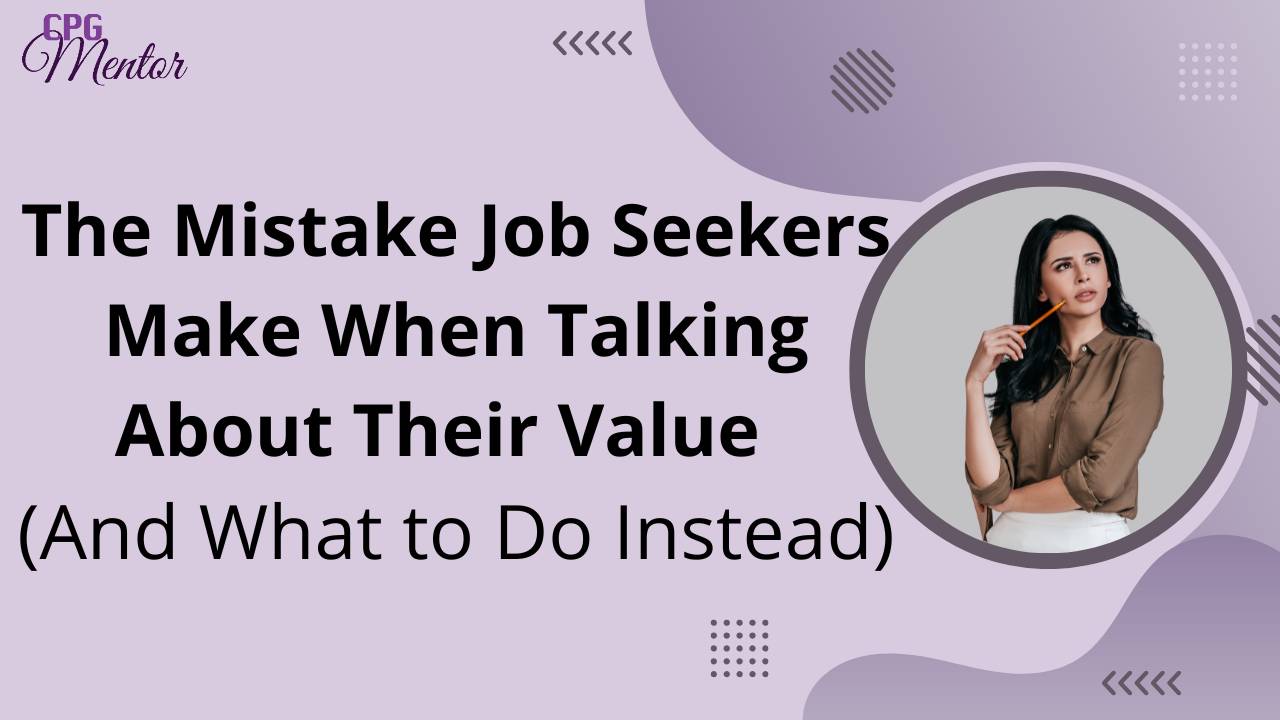
If You’re Listing Job Duties in Interviews, You’re Missing the Point
One of the most common mistakes I see job seekers make — even really talented, experienced professionals — is talking about their value in terms of responsibilities instead of results.
I hear it all the time in mock interviews and coaching calls:
➡️ “I managed a team of five.”
➡️ “I handled customer accounts.”
➡️ “I was responsible for marketing strategy.”
Here’s the problem: That’s what you did. Not what impact you had.
Hiring managers don’t just want to know what was on your to-do list.
They want to know:
➡️ What changed because you were in that role?
➡️ What did you improve, fix, or create?
➡️ What would you bring to us that you brought to them?
Why Talking About Tasks Doesn’t Work
When you focus on tasks, you blend in.
Everyone in that role does those things.
But when you focus on impact, you stand out.
Think of the difference:
❌ “I led a cross-functional team.”
✅ “I led a cross-functional team that laun...
"I Don’t Know What I Want to Do Next": How to Figure It Out When You Feel Stuck

Feeling Stuck Doesn’t Mean You’re Lost—It Means You’re Ready for Clarity
If you’re in a job search (or thinking about starting one) and catch yourself saying, “I don’t even know what I want to do next,” you’re not alone.
I hear this all the time from smart, capable professionals—people who’ve built great careers but now feel stuck at a crossroads.
Here’s what I want you to know:
➡️ You don’t need all the answers today. You just need a starting point.
Let’s break down how to figure out what you want next when you’re feeling overwhelmed, unclear, or pulled in too many directions.
1️⃣ Stop Trying to Solve It All in Your Head
When you’re stuck, it’s easy to spin in your own thoughts. But clarity comes from action, not overthinking.
Instead of trying to figure out your next role sitting alone with a blank screen, start by:
- Talking to people in roles you’re curious about.
- Exploring job descriptions that spark any interest—without judgment.
- Taking note of what feels exciting and w...
How to Navigate a Job Search When You're "Too Experienced" for the Role
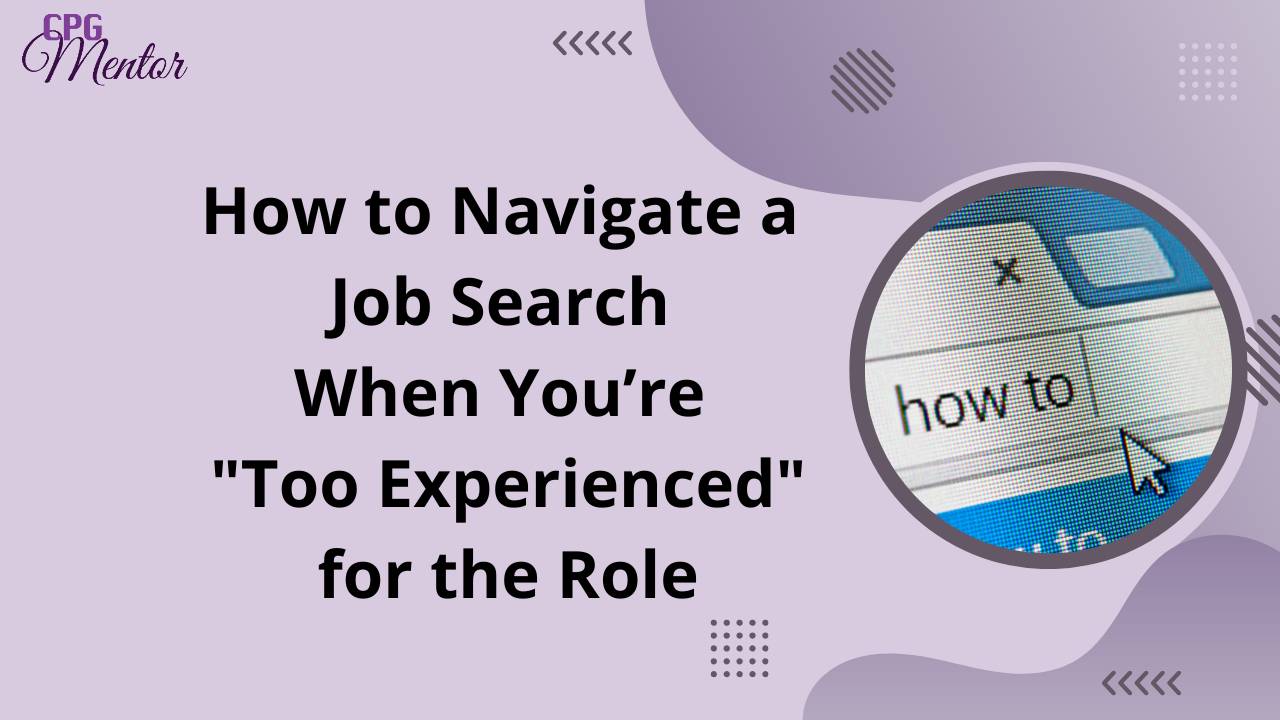
When You Hear "You're Overqualified" — What It Really Means
If you’ve ever been told, “You’re too corporate,” or “You’re too senior for this role,” you know how frustrating that feedback can be.
You may have the exact skills they need, but if your experience is seen as “too much” — it can feel like a wall between you and the opportunity.
But here’s the truth:
It’s rarely about your qualifications — it’s about how you’re telling your story.
The good news? You can reshape that story to show that you’re the solution they need — without downplaying your expertise.
What Hiring Managers Are Really Worried About
When companies say you’re “too experienced,” here’s what they often mean:
- "You won’t stay long — you’ll get bored."
- "You’ll expect a higher salary than we can pay."
- "You’ll struggle to adapt to our scrappy, fast-moving environment."
- "You’ll want to change everything instead of learning how we do things."
Understanding these concerns helps you address them head-on in int...
Why Companies Hire You– For the Future—Not the Past
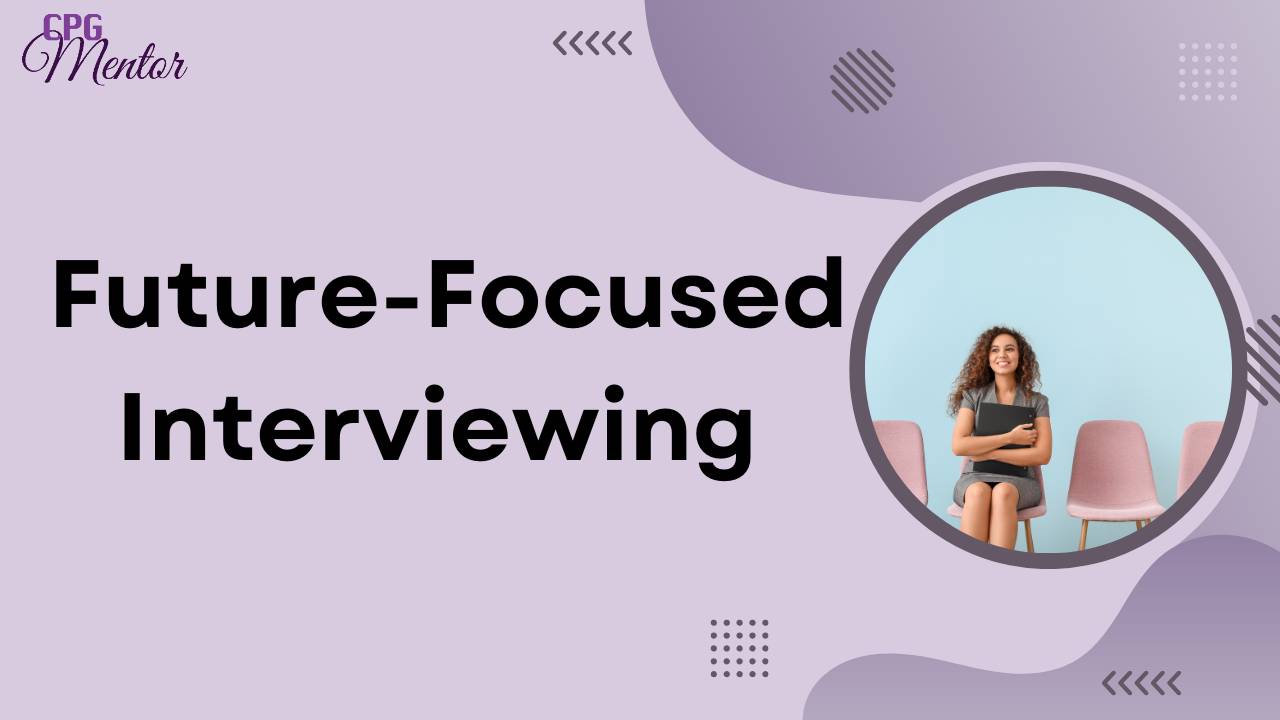
Job seekers often spend too much time proving where they’ve been instead of showing where they can take a company next. But here’s the truth: you’re not being hired for what you’ve done—you’re being hired for what you’ll do.
This mindset shift can change the way you approach interviews, making you stand out as the solution they need, not just another qualified candidate.
Why Experience Alone Won’t Get You Hired
I recently worked with a marketing leader who had a strong background and consistently performed well in interviews, yet he wasn’t getting offers. His experience wasn’t the issue—the way he positioned it was.
He spent too much time justifying his past instead of helping hiring managers see a clear path to their future success.
The turning point came when we reframed his interview approach to focus on one key question:
➡️ How does my experience solve their specific problem?
Once he started positioning himself as the missing piece to their business challenges, things change...
What I Wish More Job Seekers Knew About Follow-Ups

The Follow-Up Mistake That’s Costing You Opportunities
Most job seekers send follow-ups like this:
📩 "Hi, just checking in to see if there’s an update."
But here’s the thing—hiring managers don’t just want reminders. They want value.
If your follow-up is only about getting an update, it might not move the needle. But if your follow-up keeps you top of mind and reinforces your value, it could be the thing that gets you the offer.
How to Follow Up Without Feeling Pushy
Instead of sending a passive check-in, make your follow-up work for you. Try these instead:
✔️ "Hi [Hiring Manager], I was thinking about our conversation on [topic] and came across this article. Thought you might find it useful!"
✔️ "Hi [Hiring Manager], I really enjoyed learning about [challenge they mentioned]. If I were in the role, I’d start by [quick insight]."
✔️ "Hi [Hiring Manager], I wanted to share a project I worked on that aligns with [something they care about]. Excited to continue the conversation!"...
Stop Giving Your Worst Interviews to the Jobs You Want Most

Why High-Stakes Interviews Feel So Hard
Have you ever nailed an interview for a job you weren’t that excited about—only to completely choke when it was a role you really wanted?
You’re not alone.
I once worked with a CPG marketing leader who had great interviews for roles they weren’t fully invested in. But when their dream job came along? The nerves took over. They over-prepared, second-guessed every answer, and left the interview feeling defeated.
Why does this happen? Because the more we want something, the harder we grip it. And that pressure can sabotage our performance.
How to Stop Psyching Yourself Out
The good news? You can change this. Here’s how my client shifted their mindset—and finally landed the role they wanted most.
✅ Reframe Your Thinking
- Instead of: “I have to get this job.”
- Try: “I’m here to see if this is the right fit for both of us.”
- Why it works: This removes the pressure and puts you in evaluation mode, making you a stronger, more confident candidate...
The Surprising Way to Make Networking Feel Less Awkward
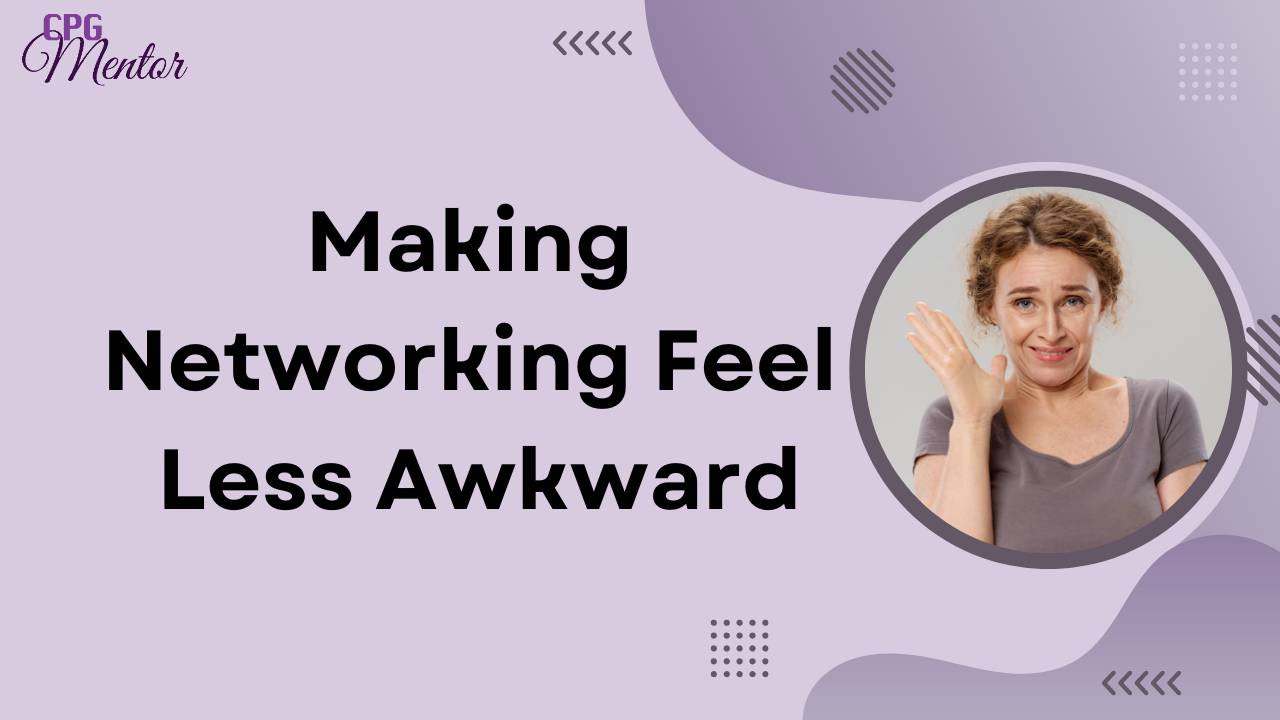
Networking Doesn’t Have to Feel Like Asking for a Favor
A client once told me, "I hate networking because it feels like I’m bothering people."
Sound familiar?
For many job seekers, networking feels uncomfortable because it’s framed as asking—for advice, for a job lead, for help. But here’s a reframe that changes everything:
➡️ What if networking wasn’t about asking? What if it was about offering?
Once my client started thinking of networking as a way to build relationships, not extract value, the conversations felt more natural. And, ironically, more job opportunities started showing up.
Shift from Asking to Offering
Instead of reaching out with, "Do you know of any openings?" (which can feel transactional), try these conversation starters:
✔️ “I’d love to hear about your career journey—what led you to where you are today?”
✔️ “What’s the most exciting project you’re working on right now?”
✔️ “If you were in my position, what would you focus on next?”
These questions make netw...
Leveraging Weak Ties and Unlikely Opportunities: The Hidden Power of Your Network
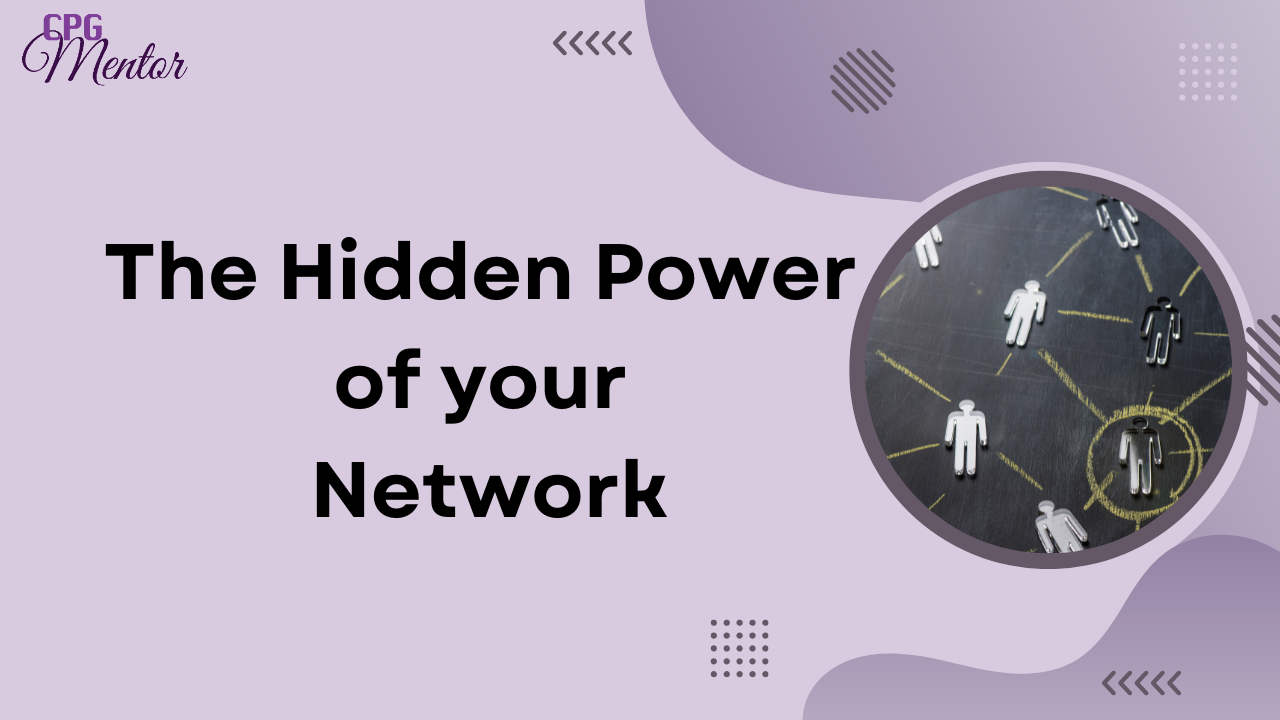
Your Next Job Might Come from Someone You Haven’t Talked to in Years
Most job seekers focus their networking efforts on close colleagues, industry peers, or recent connections. But what if the best opportunities actually come from people you haven't spoken to in a while?
A client of mine learned this the hard way. After months of job searching with little traction, they decided to reconnect with an old coworker—someone they hadn’t spoken to in years. That one conversation? It led to a referral, an interview, and an eventual job offer.
This isn’t luck—it’s the power of weak ties.
Why Weak Ties Matter More Than Strong Ties
🔹 Your closest contacts know the same opportunities you do.
- Strong ties (close colleagues, friends, mentors) often have overlapping knowledge of job openings and industries.
🔹 Weak ties introduce fresh perspectives and hidden opportunities.
- Former classmates, distant colleagues, and casual acquaintances have access to a completely different network.
🔹 ...
Winding Down Your Job Search: What to Do After You’ve Accepted an Offer

Your Job Search Isn’t Over the Moment You Say “Yes”
You’ve done it. After months of networking, interviews, and follow-ups, you’ve landed the offer and officially accepted a new role. Congratulations!
But before you completely close this chapter, there are a few critical steps to ensure a smooth transition and set yourself up for long-term success.
Here’s what you should focus on once you’ve accepted an offer.
1️⃣ Gracefully Wrap Up Other Opportunities
If you were interviewing for multiple roles, it’s time to let the other companies know you’re withdrawing from their process. Why this matters:
✔️ It keeps your reputation strong.
✔️ It maintains relationships for the future.
✔️ It ensures you leave doors open in case things change down the road.
How to decline an offer or withdraw from an interview process professionally:
📩 “Hi [Hiring Manager/Recruiter], I truly appreciate the opportunity to be considered for this role and have enjoyed learning more about your team. I wanted to...
They Said “You’re Too Corporate.” Here’s Why That Rejection Didn’t Matter.

Rejection stings—especially when you feel like you were the right fit.
I recently worked with a corporate leader who wanted to use his leadership in smaller organizations than he had previously.. He had the skills, the experience, and the drive. But after an interview, the hiring manager gave him feedback that felt like a gut punch:
"You’re too corporate."
He took it hard. He assumed this meant he’d never make the leap. But instead of accepting that narrative, we rewrote the story.
Why Perception Matters More Than Qualifications
This client wasn’t actually "too corporate." He had plenty of scrappy, adaptable experience—it just wasn’t coming through in his resume or interviews.
Together, we shifted the way he told his story:
✔ We reworked his resume to highlight agility over structure.
✔ We repositioned his experience to emphasize problem-solving over process.
✔ We created new talking points to show how he had navigated ambiguity, adapted quickly, and thrived in fast-moving enviro...
